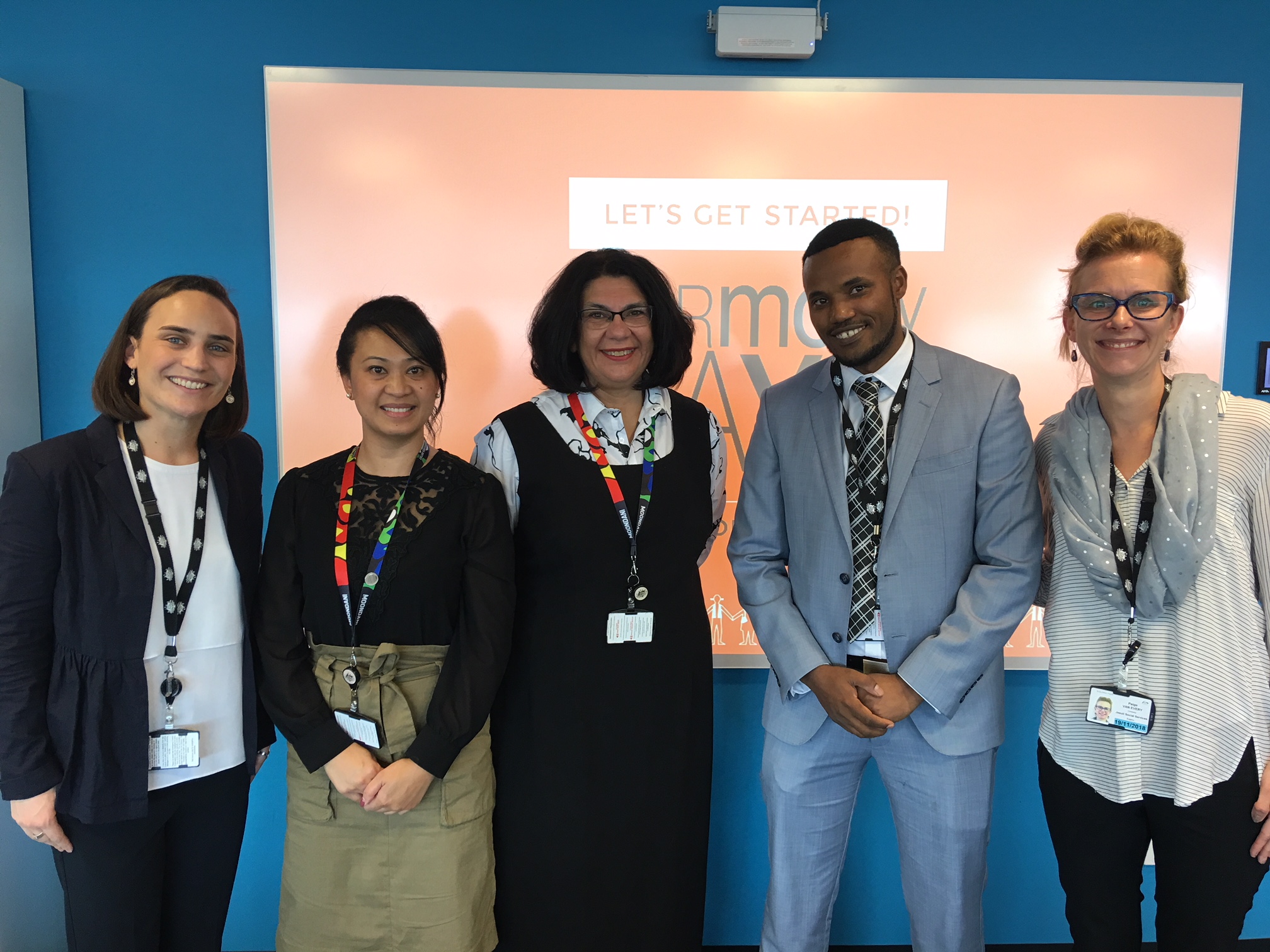Skip to:
- Give Today
- Contact Us
- Media
- Search
News & Stories
Leadership Development Program
Professional Learning Program
Undergraduate Teaching Program
Common search terms
Culturally and linguistically diverse groups in Australia experience very high rates of unemployment as well as chronic under employment. In particular, migrants and refugees encounter multiple and sometimes complex barriers to finding work in Australia, one of which includes conscious and unconscious biases in Australian recruitment processes.
Pip McIlroy (Cohort 2013) currently works in the Corporate Diversity Partnerships team at Jesuit Social Services.
“Our partnership programs aim to provide those facing barriers to employment a foot in the door and highly valued local experience in their field. Our team currently works with the National Australia Bank, the Australian Taxation Office and John Holland in the engineering sector to link qualified people who have faced barriers to employment in their field, such as migrants and refugees,” Pip says.
“The work we’re doing has really far-reaching effects in terms of the capacity to provide role models within communities of inequity so that young people can see a pathway ahead of them post-school.”
“There’s a fixation on candidates requiring ‘local experience’. Many migrants and refugees find it difficult to secure employment in their field in Australia.”
“Our participants undertake a six-month paid, supported work placement and receive training with a view to assisting them in securing ongoing employment in their area of qualification. For the organisations we partner with, the programs assist in achieving business and social impact goals, the opportunity to nurture a dynamic, inclusive workplace culture with diverse ideas and innovative problem solving. It also ensures that these organisations reflect their customer base.”

Pip was part of Teach For Australia’s fourth cohort.
“I was applying for a number of graduate programs at the same time that I submitted my application to Teach For Australia. Once I realised that Teach For Australia was the one that scared me the most, that the program would push me quite far outside my comfort zone, I knew I had to do it.”
As part of the Leadership Development Program, Pip taught at Mill Park Secondary College. She stayed on at the school for another two years after completing the program, where she was able to consolidate her teaching practice and take on more responsibility.
“While I was undertaking the Leadership Development Program, I was also studying towards a Masters of Theology specialising in mission and culture,” Pip says.
“I’m particularly interested in values-based organisations in the social services and health sectors which have a strong vision and mission that influences the work that they do and the people they are.”
That’s exactly how Pip has found herself working for Jesuit Social Services.
“The organisation is very successful in delivering a variety of high quality services to vulnerable people in our community. At the same time, it has a strong focus on advocacy, research and social policy in order to continue to build awareness of injustice and respond to areas of need.”
“I cannot underestimate how much my experiences in the classroom, in positions of responsibility and the training I received through the Leadership Development Program have equipped me with the transferable skills I feel I require to succeed in my current role and in the future,” Pip says.
“These include the ability to work productively and calmly in a fast paced and stressful environment, an understanding of the complexity of social determinants of inequity, the ability to tune into an audience and communicate clearly and efficiently, emotional resilience, humility and a commitment to continue to work with those who are most marginalised and vulnerable in our community.”
If you’re looking for ways to get involved in similar missions, there are plenty of opportunities: